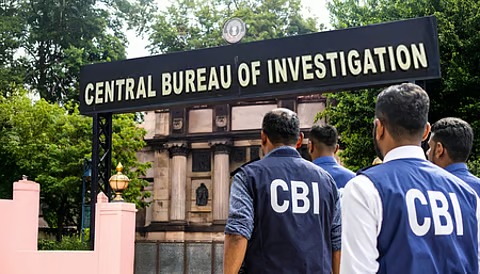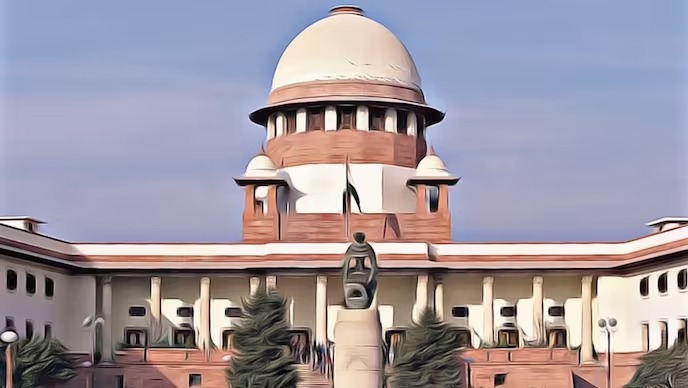Amitava Roy, J.@mdashFamilies of 54 petitioners, represented by them are before this court being aggrieved by notices issued by the official respondents directing them to vacate the land in their occupation within a period of 10 days from the date of issuance thereof. This court while issuing notice of motion on 15.7.1998; in the interim directed that status-quo with regard to the petitioners'' possession of the land would continue. The interim order, after the rule was issued was continued. As a result the petitioners, are still in occupation of the land in their possession.
2. I have heard Mr. M. A. Skheih, learned counsel for the petitioners and Mr. Thakur, learned State counsel.
3. The facts in the minimum as can be gathered from the petition are that the petitioners are landless persons having been uprooted from their earlier sites due to floods of the river Brahmaputra. They claim to be in possession of the land for last 32 years. Plots ranging from 1B to 12B in areas are in their occupation. They have raised residential houses thereon and planted valuable trees. They earn their livelihood from cultivation on the said land. The petitioners have provided the particulars of the land, crops and the structures thereon in a statement annexed to the petition. According to them, the land is a waste land available for disposal by settlement under the Settlement Rules framed under Assam Land Revenue Act, 1886. They have asserted that the land is neither a forest reserve land nor has been proposed to be included in any reserve forest. The petitioners have submitted several representations before the concerned authorities for settlement of the land but not follow up action has been taken in this regard. While the matter rested at that an eviction process was initiated against some of them and notices to the said effect were issued to the petitioner Nos. 26, 31, 40 and 33 and others. They assailed the same before the Assam Board of Revenue by filing an appeal being No. 178(RA)/93 and the learned Board admitted the appeal and stayed the operation of the impugned notices. The petitioners further claimed that they have been paying Tauji Bahi revenue to the Govt. According to them, they have spent substantial amounts in the land and have contended that the impugned notices besides being vague and unintelligible are opposed to the letter and spirit of the settlement rules framed under the said Regulation.
4. No affidavit has been filed by the State respondents and therefore the statements made in the petition remain uncontroverted.
5. Mr. Sheikh, while supporting the contentions raised in the petition argued that the land concerned being a waste land and petitioners being in occupation thereof for three decades now, they are entitled for settlement thereof under the Rules. In that view of the matter, according to the learned counsel, the impugned notices are on the face of the record, illegal, arbitrary and discriminatory. He submitted that the materials on record do not disclose that the land involved is a forest land or a land proposed to be included in a reserved forest and as the necessary exercise thereof has not been undertaken by the official respondents for the said purpose as required under the law, the land therefore is at the disposal of the Govt. for settlement. According to Mr. Sheikh, the prayer of the petitioners for settlement thereof ought to have been considered and therefore the impugned action of issuing notices without considering their cases is illegal and thus liable to be quashed.
6. Mr. Thakur, while supporting the impugned action submitted that the land is included in the forest area and the petitioners have no right in law to claim settlement thereof. As their occupation is that of trespassers, the official respondents are right in initiating the proposed eviction process.
7. From the materials on record it is not clear whether the land is included in a forest area or is proposed to be included in such area. Prima facie it appears from the petition that the land in question is in occupation of the petitioners for several years. The statement annexed to the writ petition, demonstrates that they have structures thereon as well as valuable fruit bearing and other trees. The documents annexed to the also suggest that they have approached the concerned authorities for settlement of the land in their occupation. The petitioner Nos. 26, 31, 36 and 40 who are similarly situated like the others are already protected from eviction by the learned Board of Revenue. The impugned notices are also vague inasmuch as the same do not contain the particulars of the land from which eviction is sought. No notice or opportunity of hearing appears to have been granted to the petitioners before issuance of eviction notices.
8. It is a trite law that even if a trespasser of a Govt. land is to be evicted therefrom, the procedure prescribed by law has to be followed. The procedure essentially has to be fair and reasonable to be inconformity with the requirements of Article 21 of the Constitution of India. The materials on record do not disclose that such a procedure had been followed. In the above premises, the impugned notices are liable to be quashed. A ordered accordingly. The land in question if in fact is a waste land as contemplated under the settlement rules and as claimed by the petitioners, they are entitled to have their cases considered for settlement thereof in accordance with law. The documents annexed to the writ petition suggest that representations to the said effect have already been filed by the petitioners. There is nothing to indicate that the same has been rejected by the concerned authorities. In that view of the matter, I am of the considered opinion that if the land is available for settlement under the settlement rules, it would be in fitness of things for the concerned official respondents to consider the prayer of the petitioner for settlement of the land in their occupation. As the representations submitted for the purpose and annexed to the writ petition, have been filed long back, liberty in granted to the petitioners to file a fresh representation before the concerned authority of the Govt. setting out therein the detailed particulars of the land in their occupation and the facts in support of their claim for settlement and if the same is done, the authority concerned would take up for consideration the same and pass appropriate orders in accordance with law. The petitioner if they choose to file such representation would do so, within a period of two months therefrom.
9. In view of the conclusion recorded with regard to the impugned notices, it is further provided that till such representation is disposed of, the petitioners'' possession of the land presently occupied by them shall not be disturbed. In the event of the representation being rejected, and the authorities are inclined to get the land vacated they would follow the procedure prescribed by law for such purpose. It is further made clear that if no representation is filed, it would be open for the State respondents to take appropriate action against them as permissible under the law.
10. With the above observations and direction, the petition is closed.

